Core Research Projects
Community Influences Transitions of Youth Health (CITY Health): Building Resilience Among Emerging Adults (2009-2014)
Principal Investigator
Jalie A Tucker, jaliet@ufl.edu
Funding Source
CDC Prevention Research Centers Program
Project Status
Non-Active
Health Topics
Healthy youth | Nutrition & physical activity for youth | Obesity & overweight | Sexual health | Substance abuse prevention | Violence prevention
Research Setting
City | Neighborhood | Urban area
Race or Ethnicity
African American or Black
Gender
No specific focus
Age Group
Adolescents (12-17 years) | Young Adults (18-24 years)
Select Related Products
Tucker, JA, Chandler, SD, & Cheong J. (2020). Predicting HIV Testing in Low Threshold Community Contexts Among Young African American Women Living in the Southern United States. AIDS Care – Psychological and Socio-Medical Aspects of AIDS/HIV 32(2): 175-181. PMID 31526051/PMCID PMC6937398.
Cheong, J, Tucker JA, & Chandler SD. (2019). Reasons for Accepting and Declining Free HIV Testing and Counseling Among Young African American Women Living in Disadvantaged Southern Urban Communities. AIDS Patient Care and STDs 33(1): 25-31. PMID 30328693/ PMCID PMC6338458.
Tucker JA, Cheong J, & Chandler SD. (2016). Selecting Communication Channels for Substance Misuse Prevention With At-Risk African-American Emerging Adults Living in the Southern United States. Journal of Child & Adolescent Substance Abuse 25(6): 539-545. https://doi.org/10.1080/1067828X.2016.1153552
Tucker JA, Simpson CA, Chandler SD, Borch CA, Davies SL, Kerbawy SJS, Lewis TH, Crawford MS, Cheong JW, Michael M III. (2016). Utility of Respondent Driven Sampling to Reach Disadvantaged Emerging Adults for Assessment of Substance Use, Weight, and Sexual Behaviors. Journal of Healthcare for the Poor and Underserved 27(1): 194-208. PMID 27763465.
Tucker JA, Cheong J, Chandler SD, Crawford MS, & Simpson CA. (2015). Social Networks and Substance Use Among At-Risk Emerging Adults Living in Disadvantaged Urban Areas in the Southern United States: A Cross-Sectional Naturalistic Study. Addiction 110(9): 1524-1532. PMID 26054041.
Cheong J, Tucker JA, Simpson CA & Chandler SD. (2014). Time horizons and substance use among African American youths living in disadvantaged urban areas. Addictive Behavior 39(4): 818-823. PMID 24531637.
Davies SL, Cheong JW, Lewis TH, Simpson CA, Chandler SD, & Tucker JA. (2014). Sexual Risk Typologies and their Relationship with Early Parenthood and STI Outcomes Among African-American Emerging Adults: A Cross-Sectional Latent Profile Analysis. Sexually Transmitted Infections 90(6): 475-477. PMID 24860103.
Davies SL, Thind HR, Chandler SD, & Tucker JA. (2011). Enhancing Resilience Among Young People: The Role of Communities and Asset-Building Approaches to Intervention. Adolescent Medicine: State of the Art Reviews 22(3): 402-440. PMID 22423458.
Davies SL, Thind HR, Chandler SD, & Tucker JL. (2011) Enhancing Resilience Among Young People: The Role of Communities and Asset-Building Approaches to Intervention. In Adolescent Medicine State of the Art Reviews (402-440). Elk Grove Village, IL: American Academy of Pediatrics.
In Birmingham, Alabama, racial segregation, income inequality, and violent crime contribute to an environment in which many adolescents are at risk for negative health and psychosocial outcomes. When young people are not resilient to adverse circumstances they may develop behaviors that contribute to a cycle of illness and an inability to thrive that can continue into adulthood. Chronic health problems not only threaten individual success but, in aggregate, may also hold back community development.
Researchers are determining what factors contribute to emerging adults becoming resilient to health risks prevalent in Birmingham’s largely African American, disadvantaged urban neighborhoods. Resilience promotes positive outcomes despite adverse circumstances. Young people aged 15 to 24 experience a period of rapid physical, mental, and social change as well as economic challenges that can prepare them for the responsibilities of adulthood. However, negative health behaviors developed in early adulthood also affects physical and mental health later in life. The researchers are studying how some individuals and social networks resist negative influences and adopt strong, positive behaviors.
In Phase One of the project, researchers are working with a faith-based group, Congregations for Public Health (CPH), to identify social network leaders who can recruit hard-to-reach peers. The researchers will interview adolescents characterized as resilient to determine the qualities that help them resist negative influences. These qualities will serve as the basis for training high-risk peer leaders during the project’s second phase. The researchers are also determining which set of modifiable risk factors for example, substance abuse, sexual activity, and violence or low physical activity, poor nutrition and obesity are most amenable to intervention.
In Phase Two, adolescents found to be resilient will serve as a control group. High-risk adolescents will be given a brief health promotion component and then randomly assigned to intervention and non-intervention groups. The intervention will be peer-led and will use participant-identified channels to deliver collaboratively generated content. The center will train CPH staff to be community health advisors who will deliver intervention material to leaders in the social networks and participate in data gathering and evaluation. Researchers will conduct 8, 16, and 24 month follow-up assessments of participants to gauge how well they are avoiding the selected health risk behaviors.

